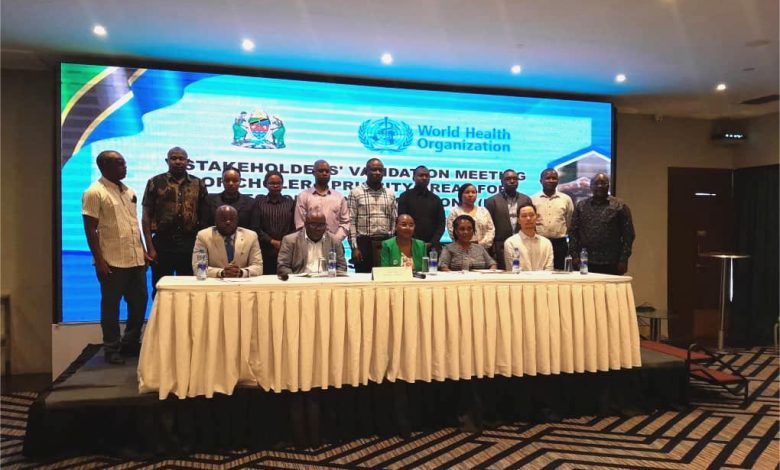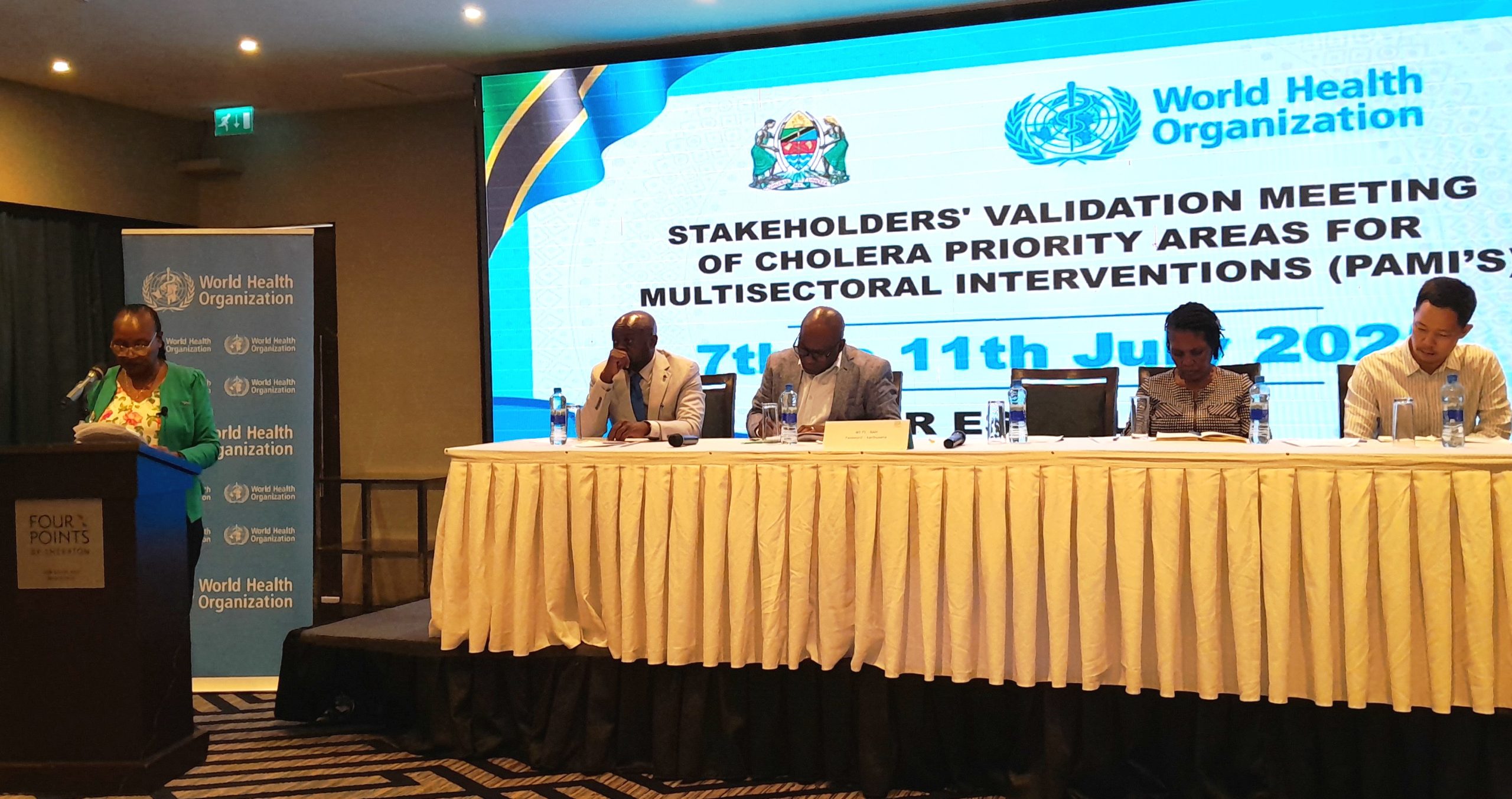Tanzania seeks to eliminate the cholera outbreak in five regions

DAR ES SALAAM: RUKWA, Mwanza, and Mbeya regions have reported the highest number of cholera outbreaks as Tanzania has intensified efforts to completely eradicate the killer disease.
The Health Ministry’s epidemiological monitoring data from January 2024 to July 2025 shows that the five regions lead in having many cases of the cholera outbreak.
The ministry’s data released today, July 9, 2026, shows that there are 2,230 sick people in Rukwa, followed by Mwanza, with 1,318 sick people, while there are 1,041 sick people in the Mbeya region.
Others are Songwe with 760 sick people and Ruvuma, where 33 patients have been reported.
Speaking during a meeting of stakeholders and experts in Epidemiology organized by the World Health Organization (WHO), the Assistant Director of the Prevention Department of the Ministry of Health, Dr. Vida Makundi, said that caution has been ongoing in regions where the disease has been reported.

“The biggest issue in prevention is having clean and safe water. Efforts are ongoing in regions and councils to ensure that communities have safe and clean water. Also, where water is not safe, they advise using water treatment tablets at the household level, which are being distributed,” he explained.
Adding, she said: “The water treatment tablets are safe and have been certified by the World Health Organization for use in water treatment.
Dr. Makundi said that the community should have good toilets and use them because the disease is caused by parasites that come from human faeces, so if stored properly, the parasites do not spread.
“We are looking at areas that have been plagued for a long time and need additional strength and focus on problem areas so that we can completely eliminate them.
She noted that there are global strategies to reduce cholera by 90 percent by 2030.
“And to achieve the goal, we are doing so, we have identified the councils with the highest risk, and we are focusing on that now.
ALSO READ: Tanzania reaffirms commitment to fight sickle cell disease
For his part, Head of Emergency and Pandemic Preparedness from WHO Regional Office, Dr. Dick Chamla said he expects efforts to increase and Tanzania is among the countries that will be most successful in planning.
“Studies show that the main reason is water and sanitation, and another problem is that the infrastructure for empowerment requires long-term investment, so we are struggling in Africa to get empowerment to improve access to clean water and good toilets, and our governments need to invest more.





